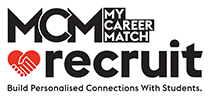The age-old debate of passion versus practicality in career choices has been reignited by a recent study conducted by the National Centre for Student Equity in Higher Education (NCSEHE) in 2022 and reported by ABC News Australia.
The research highlights a concerning trend in career guidance for high school students, emphasising that the information provided is heavily biased towards university education. This approach, which prioritises academic achievement over personal strengths and interests, may be setting up students for future dissatisfaction and missed opportunities.
The findings are filled with stories of high school students being pushed into subjects for Years 11 and 12 that they had no interest in, but staff at their schools thought it would be a good fit academically, and then dropping out due to having no motivation — or similar reasons.
The report pointed out that the current career advice paradigm is largely limited to subject selection based on grades. This narrow perspective overlooks the multifaceted nature of individuals, who possess unique strengths, passions, and personality traits that can significantly influence their career success and satisfaction.
Consider the story from the report of a student with a genuine interest in maths and sciences. Despite their enthusiasm, the student’s academic scores led teachers to conclude that they weren’t cut out for such subjects. Consequently, the student was funnelled into VET courses, which they had no passion for. This example underscores the potential pitfalls of a system that prioritises grades over genuine interest.
So, why is it essential to align personal strengths and personality type with career choice?
- Job Satisfaction and Fulfillment: A career aligned with one’s strengths and personality is more likely to bring job satisfaction. When individuals are engaged in roles that resonate with their innate abilities and interests, they are more motivated, engaged, and fulfilled.
- Optimal Performance: People tend to excel in roles that play to their strengths. By focusing on what they are naturally good at, individuals can achieve higher levels of performance and make more significant contributions to their fields.
- Reduced Burnout: A mismatch between personality and job requirements can lead to stress and burnout. On the other hand, alignment can result in a more balanced and sustainable career.
- Personal Growth and Development: When individuals are in roles that align with their strengths and personality, they are more likely to seek opportunities for growth, take on challenges, and invest in continuous learning.
The NCSEHE’s findings serve as a call for a shift in how we approach career guidance. It’s time to move beyond the traditional metrics of academic achievement and recognise the value of personal strengths and personality in shaping fulfilling careers. It moves decision making from “what do want to do?” to “who do you want to be?” And whilst academic achievements are undeniably important, they are just one piece of the puzzle. A holistic approach to career guidance, which takes into account self identity, personal strengths and personality types, is crucial for guiding students towards future careers that not only ensure success but also brings personal achievement, purpose and satisfaction.
MyCareerMatch provides personalised career guidance to each student. The platform analyses the students responses and generates a report identifying best career matches and recommended career paths. This information is presented in an easy-to-understand format accessible to both students, career advisers and parents. It provides valuable insights to make informed decisions about their future. View MyCareerMatch report.
For further information contact Nathan Chanesman CEO nathan@mycareermatch.com.au







